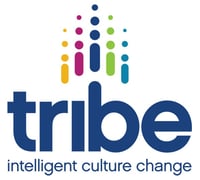
Why you’re the sum of every conversation you ever have
Conversations are the life blood of leadership and therefore organisational performance. When leaders grasp how to have effective conversations with their workforce the benefits are limitless. That’s why JOMC spend so much time leading workshops – teaching clients to do that in the context of safety, yet it’s just as effective for any other topic.
So why is something seemingly as simple as conversation such a powerful tool for changing people’s attitudes, values and beliefs?
We’re social animals
We’re designed to learn from each other as a way of surviving and prospering without making the same mistakes as our predecessors. We also developed speech and other communication (like symbols or letters) to share the risks and dangers of life even quicker and to more people.
It’s easiest to learn when we’re younger because our brains are like sponges, soaking up cultural norms so we don’t become outcasts from our tribes. This then becomes a habit of a lifetime because fitting in with our peers was crucial to our survival. It’s that legacy which still makes speaking up uncomfortable, because the pressure to conform is overwhelming.
Yet as a leader within a company you can harness this to your advantage by rewarding behaviour that leads to better performance. You do it by encouraging loyalty – spelling out exactly what you expect and how to do that in line with shared, core values.
Awareness through conversation
It’s hard to imagine what life was like without TV and the Internet, but if we aren’t told about something then we don’t know it exists. And this can remain the case if we never venture outside our usual social groups and hear about things beyond our comfort zone of usual topics.
This is how people’s attitudes, values and beliefs become embedded over time and difficult to change. But there are ways to shift them.
 In the context of a workplace, general chit-chat and awareness-raising opportunities through informal communication are essential to the creativity and innovation, engagement of your workforce. They’re possibly even more powerful than the time-draining meetings we all have to sit through with alarming frequency.
In the context of a workplace, general chit-chat and awareness-raising opportunities through informal communication are essential to the creativity and innovation, engagement of your workforce. They’re possibly even more powerful than the time-draining meetings we all have to sit through with alarming frequency.
Again, you can turn this predisposition to learn from our social groups to your advantage. For example, you can invite respected outside speakers to present a different perspective on a subject people take for granted or haven’t thought about much. That renewed interest inspires them. Or you might ask a key influencer in your organisation to talk about something that reaffirms what people already believe, reinforcing positive behaviour and assuring everyone that they’re on the right track.
A little engagement goes a long, long way
It’s hard to learn when you put disparate groups together and ask them to understand the same piece of information, especially where one is far more expert than the other. Unfortunately though, this is the undoing of many a well-intentioned culture change initiative.
A great example of this is the painfully slow process my dad goes through to learn anything new about his computer, much to the annoyance of my fourteen year old son who is trying to show him something he’s forgotten for the hundredth time.
Of course my young son absorbs new information subliminally from YouTube video tutorials where someone talks about ever-changing advancements in computer games. So why can’t we all learn in this way?
Quite simply, if it’s not in your early memory then your brain has no common route to retrieve this knowledge. And although you can learn it later it’s always at a slower speed to assimilate. Learning is also intrinsically linked to the motivation you have for a topic, which can be hard to generate when you don’t really know why you’re trying to learn something new in the first place.
This is a primary reason why many people are reluctant to try new things and make changes when they’re not completely happy about them. It’s literally alien for them to think about things in a different way or grasp concepts they’ve never heard of before.
Sadly, most changes in companies are done with little consultation or discussion, and new ideas are thrust onto people with no consideration for how they’re going to adapt to them. Of course some staff are quick to adapt, but in most cases many people resort to constant moaning and make mistakes until management assume they’re being unreasonable. This could all be avoided with a little patience and engaging discussion, the kind your average IT support line would do well to give.
How to help people adjust to learning new knowledge
Open conversations about the difficulties people have is the only way to unblock the learning process. Retraining helps but it’s really about giving them time to voice their difficulties in a way that doesn’t threaten them. Allow them to learn a new vocabulary and assimilate jargon via questions that fill in the gaps that they may feel are overwhelming. As this happens the brain begins to feel more comfortable with new ideas and there’s openness to learning more.
My dad of course got his own back recently when my son wanted to ride his punctured bike. He watched in amazement as grandad whipped the tyre off, found the tube’s hole in a bucket of water, applied a patch and had the wheel back on in minutes. Changing tyres on bikes and cars is what my dad did before Playstations and Xboxes so it stuck with him forever. My son, out of his comfort zone and no longer the expert, struggles to master this skill but thankfully has grandad’s kindly support line to rely on.



